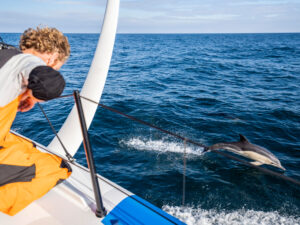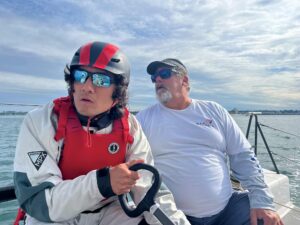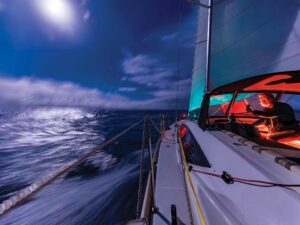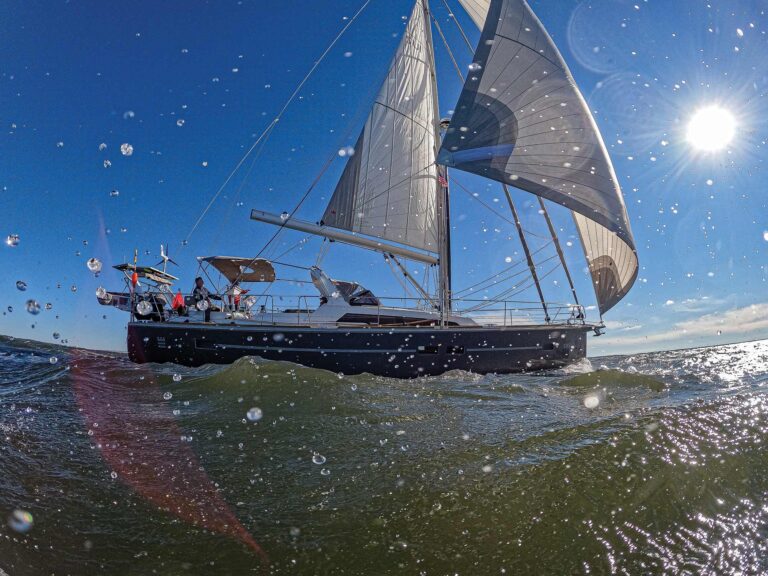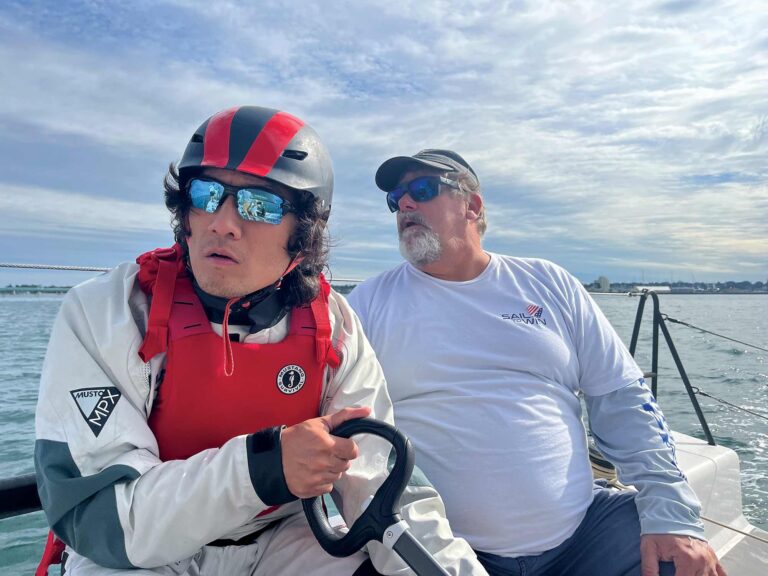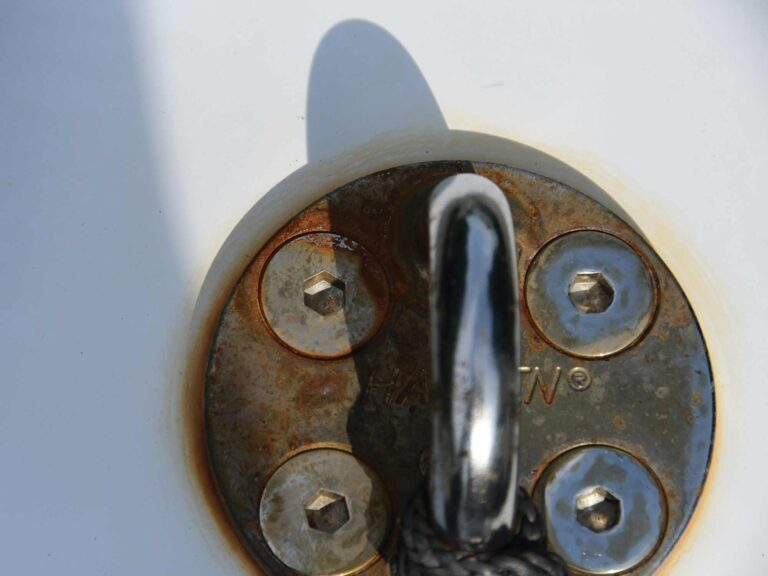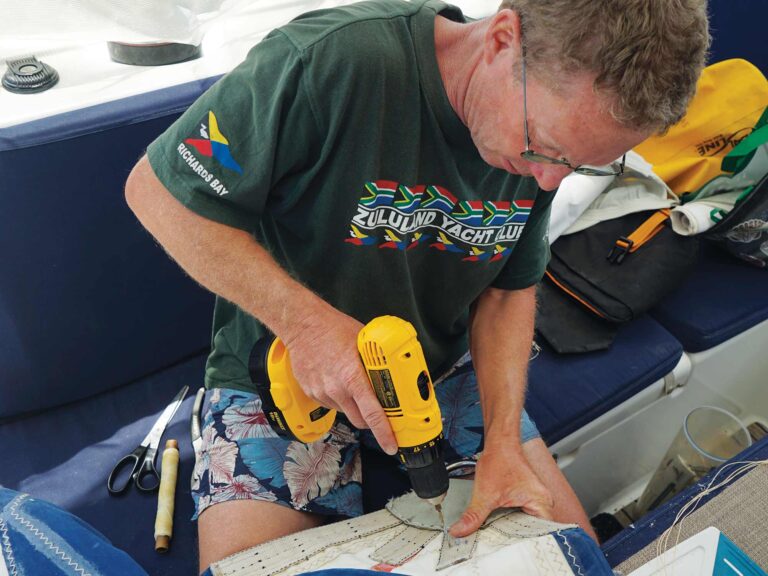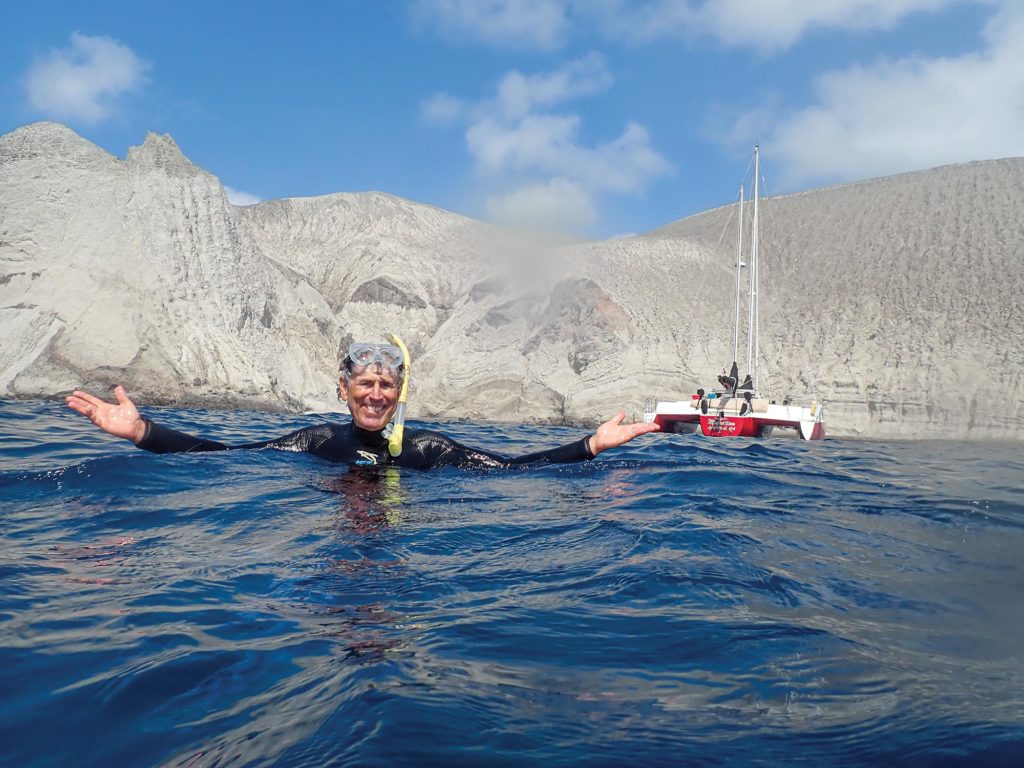
“Nineteen,” my wife counted, staring up into the night sky.
She was leaning against me as we sat in the starboard cockpit of Migration, our 46-foot Cross trimaran. We were anchored at San Benedicto Island in the Revillagigedo Archipelago, 350 miles off the Pacific coast of Mexico.
“Twenty,” she said, a few minutes later. “There, just to the right of the mizzen.”
I squinted toward where she was pointing and finally saw the small dot moving among the stars.
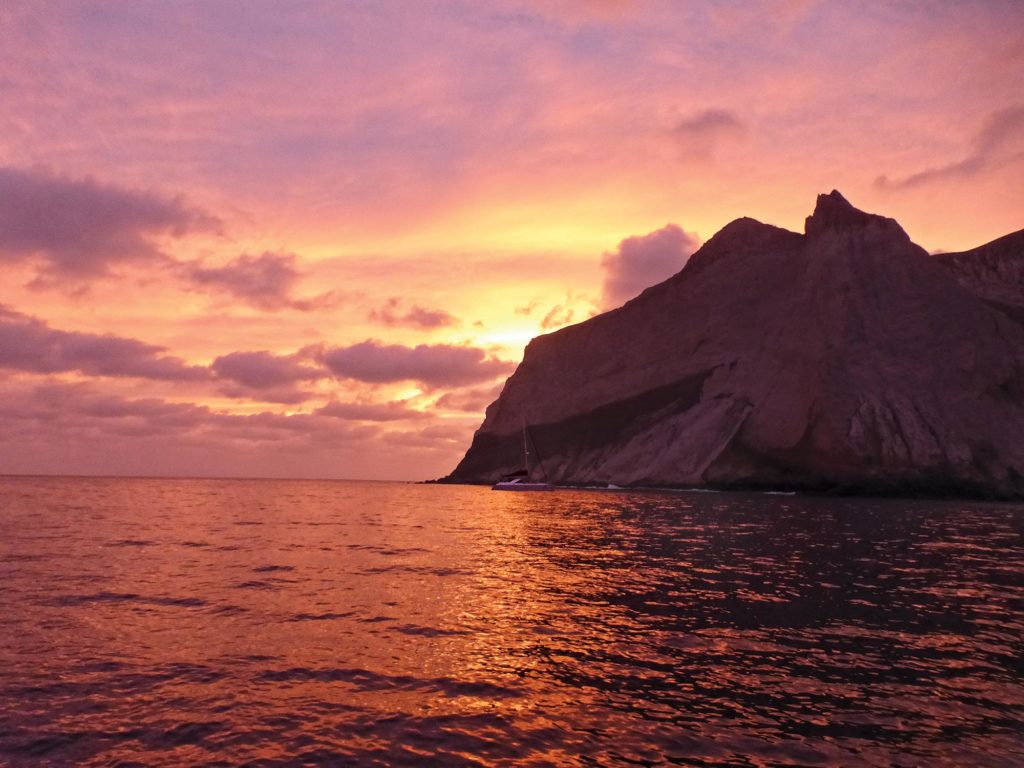
That night, like most nights in the largest marine-protected area in North America, the sky was glorious. Both the Southern Cross and the North Star can be seen hanging low in the star-strewn sky. So many stars.
And so many satellites.
I forgot the exact count that night, but we spotted somewhere around 25 in just under an hour. We’ve always loved looking for satellites but had never seen so many in such a short time. It was surprising. And, somehow, upsetting.
The next day, diving into the waters of the Revillagigedo Islands, we were overwhelmed by the beauty of what appeared to be pristine ocean inhabited by dozens of sharks, whales, turtles, dolphins and manta rays. We surfaced shouting with joy. But those who visited 30 years ago would have rolled their eyes at our enthusiasm. They were diving when the area was brimming with hundreds, not dozens, of these charismatic species. The baseline has moved. We can compare now only to what we’ve experienced. As time rolls forward, we don’t know what we don’t know.
If you dreamed of cruising in the 1970s, ’80s or ’90s, you most likely read Dove by Robin Lee Graham and Sailing Alone Around the World by Joshua Slocum. Maybe Bernard Moitessier’s books, as well as those by Robin Knox-Johnston, Sir Francis Chichester, Steven Callahan, or Miles and Beryl Smeeton. Though diverse in their stories and experience, all the writers had one thing in common: Voyaging changed them deeply. Their journeys were not just about sailing great distances, but were also about introspection. Perhaps you’ve been aboard a sailboat far out at sea during the past decade, under a glorious sky that forces you to think of the size of the universe, and your place in it, and how the natural world rolls on and on. The sails are drawing the boat forward with that inherently beautiful, astonishing, magical power. Everything in tune, the compelling energy of it all rising from the sea, through the boat, into your body. And you know that it is impossible not to be infinitely grateful for where you are, who you are. You feel the deepness of the sea, the universe, existence—and the awe of it all is complete. Nothing is needed at the moment except to sit. To sail. To be.
Then, you jump up to get the phone. Or the drone. Or the laptop.
And post.
There’s a very good chance that several of those 20-some satellites we saw were those of Starlink, SpaceX’s constellation of more than 2,500 satellites, launched to provide Internet access to nearly every spot on Earth. Internet access in midocean isn’t new; if you have a big enough yacht, and the wallet to go with it, you can have pretty good access via satellite almost anywhere. Starlink will make that possible for the rest of us. We already have 24/7 texting and tweeting using Iridium Go for less than $150 per month. We are only a few years away from everyone having full Internet access 24/7 for a couple hundred dollars.
But will anyone ask, “Do I want it?”
If you’re a young sailor who learned about cruising from famous vloggers, you might think the cruising life means sharing everything you do all the time (well, that, and making sure you video lots of bikini’d bottoms). That’s a natural assumption since the rise of social media. The baseline for someone who spent much of his early adulthood with a phone in hand is that you shoot and post and tweet and are connected to the Internet all the time. It’s what you know. It’s what you do.
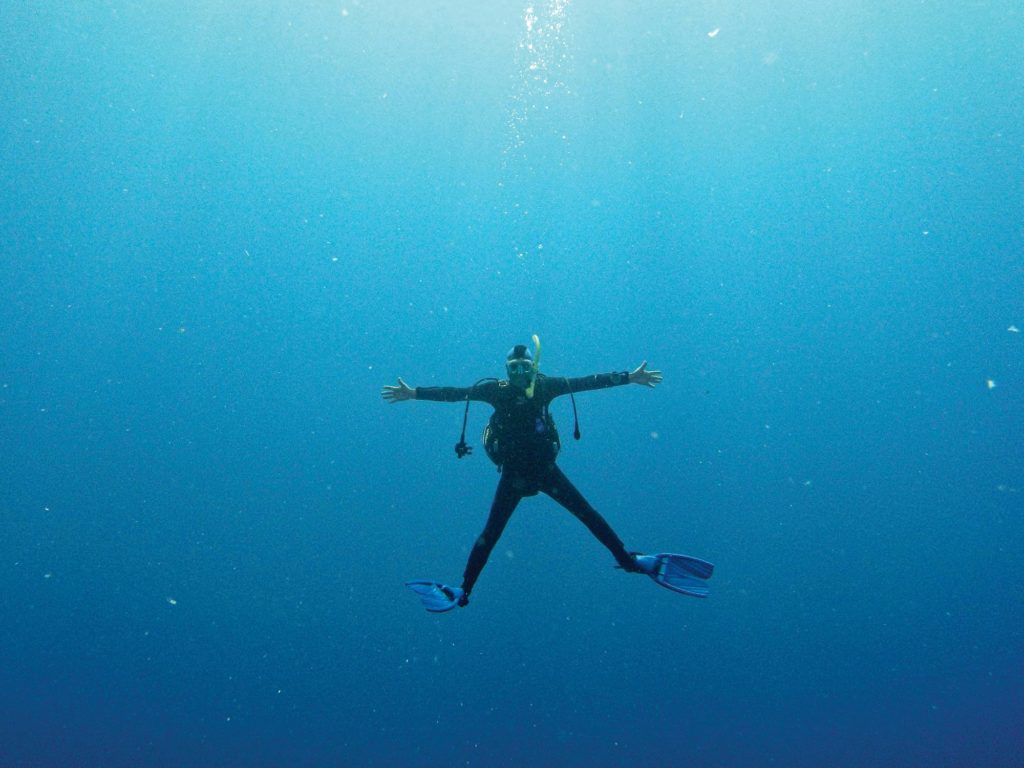
Many sailors have grown up learning that you can make money by selling the cruising dream online via blogs, vlogs, coaching and sponsorships. Some might not be aware that dreams were once shared in person, exchanging ideas and plans freely with other sailors at dockside. Or spontaneously hanging on the words of an experienced circumnavigator who invited you aboard to see her boat. Or intimately curling in the bunk of your half-refurbished boat, reading and dreaming along with the intensely personal reflections of a lone sailor at sea who had no contact with the outside world. Those dreams were often based in a desire to be free from the constraints of life ashore, unchained from the anchors of the daily slog. To live differently, expansively, individually. Can one be free when an invisible wire tethers you to civilization? Is it even possible to make the decision to cut that wire if one has never known a life without it?
Cruising has changed, and will continue to do so, from sextants and paper charts to Mario Kart-ing a triangle of your boat on a screen at the helm, and from finding a secluded anchorage because you know it’s not listed in the popular cruising guide to finding a secluded anchorage because you know it doesn’t have a mobile signal.
When I mention the possible detrimental effects of technology on the cruising lifestyle, some sailors shoot back, “If Capt. Cook had GPS, he’d surely have used it.” I agree, but he would also have a man in the rigging on lookout. Just because a technology exists doesn’t mean we must use it as we are directed, whether those directions come from marine-electronics corporations or social media giants. There is nothing inherently good about technology. It just is. How it affects our lives, by making us safer, healthier or more joyful, is based on how we choose to use it.
It’s all our choice: going to sea, multihull or monohull, cutter or sloop, wood or glass, Dacron or carbon, west or east.
As an individual, you most probably cannot choose whether the sky that humans have gazed at with wonder for millennia will be crisscrossed every couple of minutes by satellites. But, when you sit beneath those stars and satellites, whether you remain present and revel in the life you are living or get up to post—that is your choice.
Bruce and his wife, Alene, have sailed their 1969 Cross trimaran, Migration (svmigration.com), more than 65,000 nautical miles over the past 17 years. He has authored several children’s books and is the founder of thechartlocker.com.

